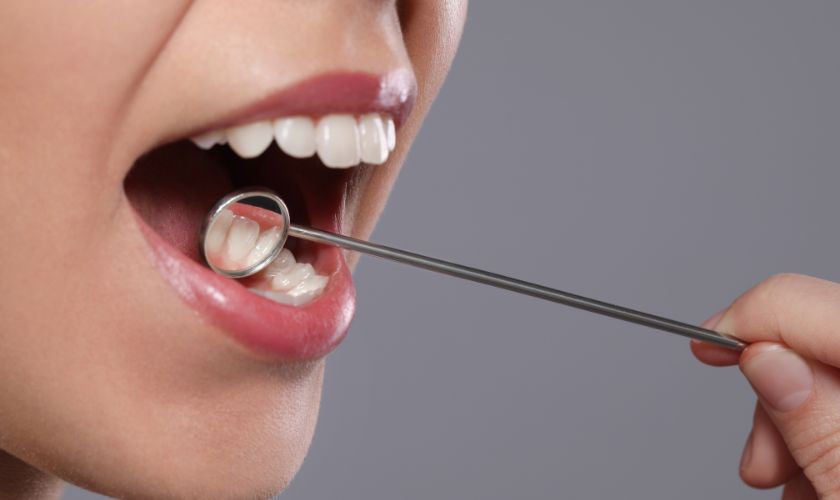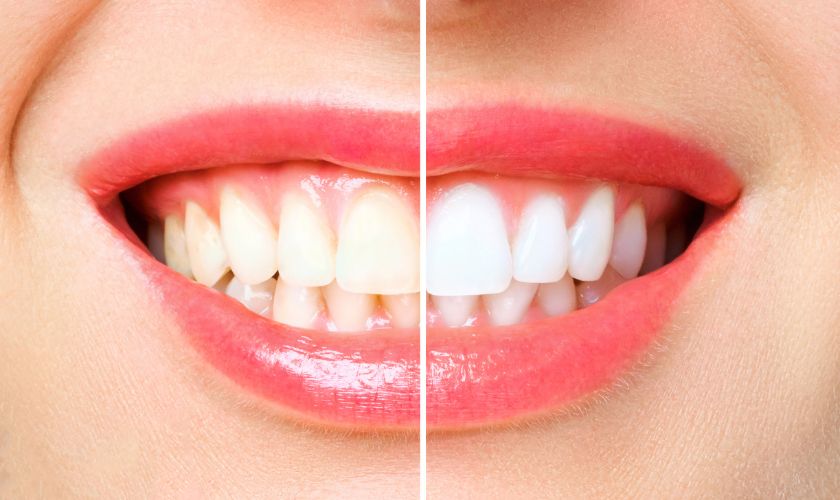Picture this: you wake up in the morning with a headache, sore jaw, and sensitive teeth. You can’t seem to pinpoint what’s causing your discomfort until you realize that your mouth feels tense and your teeth are clenched tight. Unfortunately, this scenario is all too familiar for many people who suffer from bruxism – otherwise known as teeth grinding. Whether it occurs during the day or at night during sleep, bruxism can have serious consequences on your dental health and overall well-being. In this blog post, we’ll explore what causes teeth grinding, its consequences on the body, and how to cope with it effectively.
What is teeth grinding?
Teeth grinding, also known as bruxism, is a common dental condition that involves clenching and gnashing your teeth together. It’s estimated that up to 40 million adults in the US suffer from some form of bruxism.
Most people who grind their teeth do so during sleep, but daytime grinding can occur too. Teeth grinding can cause damage to your teeth and jaw if left untreated.
Experts believe that there are two types of bruxism- primary and secondary. Primary bruxism occurs when there is no apparent underlying cause or medical condition responsible for the habit while secondary bruxism results from an existing health problem such as anxiety disorders or sleep apnea.
Teeth grinding often leads to headaches, earaches, sore jaws, weakened enamel on teeth which may lead to tooth decay among other issues.
It’s essential to identify whether one has this habit since it might be difficult for an individual with mild cases of Bruxism to notice any symptoms at all until more severe problems develop over time.
What causes teeth grinding?
Teeth grinding, also known as bruxism, can occur due to a variety of reasons. One of the primary causes is stress and anxiety. People who are stressed tend to clench their jaw muscles and grind their teeth while asleep or awake.
Another cause of teeth grinding could be an abnormal bite or missing teeth. When the upper and lower sets of teeth do not fit together properly, it leads to additional pressure on certain teeth causing them to rub against each other.
Some people develop the habit of teeth grinding as a side effect from medication such as antidepressants or antipsychotics. Research suggests that alcohol consumption and smoking may also contribute to this condition.
Additionally, children may develop bruxism due to teething pain or allergies leading to nasal congestion that results in mouth breathing throughout the night.
Teeth grinding can occur due to various factors, making it essential for individuals experiencing symptoms such as headaches, jaw soreness or tooth sensitivity during brushing to seek help from a dentist for proper diagnosis and treatment.
What are the consequences of teeth grinding?
Teeth grinding, or bruxism is a common problem that affects many people. While it may seem harmless, the consequences of teeth grinding can be significant and should not be ignored.
One of the most immediate consequences of teeth grinding is tooth damage. Over time, the constant clenching and grinding can wear down the enamel on your teeth, making them more susceptible to decay and other dental problems. This can result in tooth sensitivity, pain when chewing, and even tooth loss.
In addition to dental issues, Bruxism can also lead to headaches and facial pain. The pressure placed on the jaw joint during bruxism can cause discomfort that radiates throughout the face and head. This pain may become chronic if left untreated.
Furthermore, severe cases of bruxism have been linked to hearing loss and sleep disorders such as insomnia or sleep apnea. The sound created by gnashing your teeth together while sleeping can often wake up both you and your partner at night.
Ignoring teeth grinding puts you at risk for several health concerns beyond just dental problems. It’s important to speak with your dentist about possible treatments to help curb this habit before it leads to further complications down the line.
Treatment for Bruxism
There are several treatment options available for bruxism. The most common treatments involve reducing stress and anxiety, as these can be underlying causes of Bruxism. Patients may also benefit from practicing relaxation techniques such as meditation or taking warm baths before bedtime.
Some dentists recommend using a mouthguard at night to protect the teeth from damage due to grinding. These devices are custom-fitted to each patient and worn during sleep to prevent tooth wear and jaw pain.
In some cases, medication may be prescribed by a healthcare provider to help alleviate symptoms associated with bruxism. Muscle relaxants or anti-anxiety medications can help reduce muscle tension in the jaw and face that contribute to grinding.
It is important for patients with bruxism to seek treatment early on, as untreated cases can lead to more serious dental issues such as gum disease, tooth loss, or even temporomandibular joint disorder (TMJ).
It is essential for patients with bruxism to work closely with their dentist or doctor in order to find the best course of treatment for their individual needs.
Conclusion
Teeth grinding or bruxism is a common dental problem that affects many people of all ages. It can lead to serious consequences if left untreated, such as tooth fractures, gum recession, and even jaw disorders.
The causes of Bruxism vary from stress and anxiety to sleep disorders and malocclusion. However, there are several coping strategies available for managing the symptoms of bruxism, including lifestyle changes, relaxation techniques, mouthguards or splints.
It is essential to seek treatment for teeth grinding as soon as possible before it leads to irreversible damage. If you suspect that you suffer from bruxism or any other dental issues related to teeth grinding, consult your dentist immediately.
Remember that prevention is always better than cure when it comes to oral health care. Regular visits to the dentist can help diagnose and treat any dental problems early on before they become more severe.
In summary, understanding what causes Bruxism and its consequences while implementing effective coping strategies will help manage this condition effectively. Take proactive steps towards maintaining good oral hygiene today!
Visit Smiles of Punta Gorda
We can see you as soon as tomorrow!





